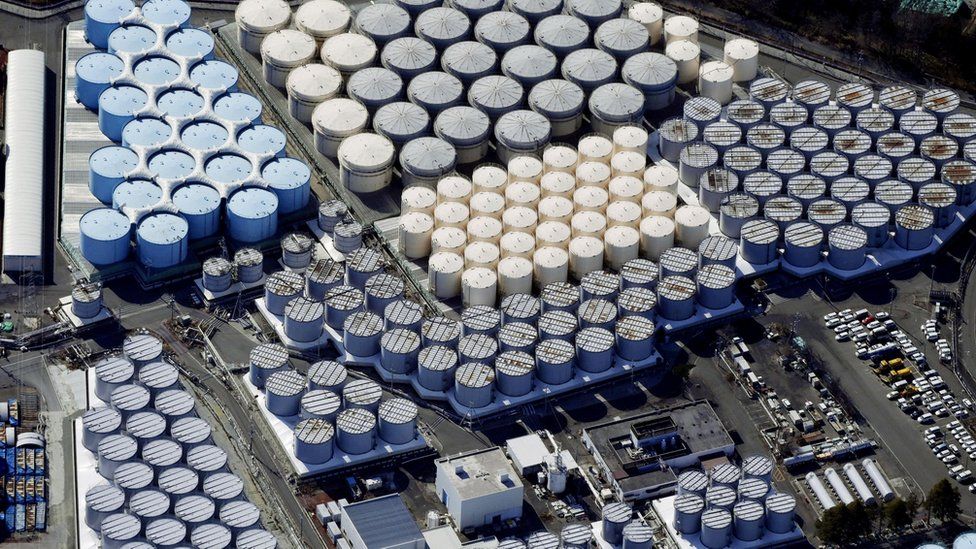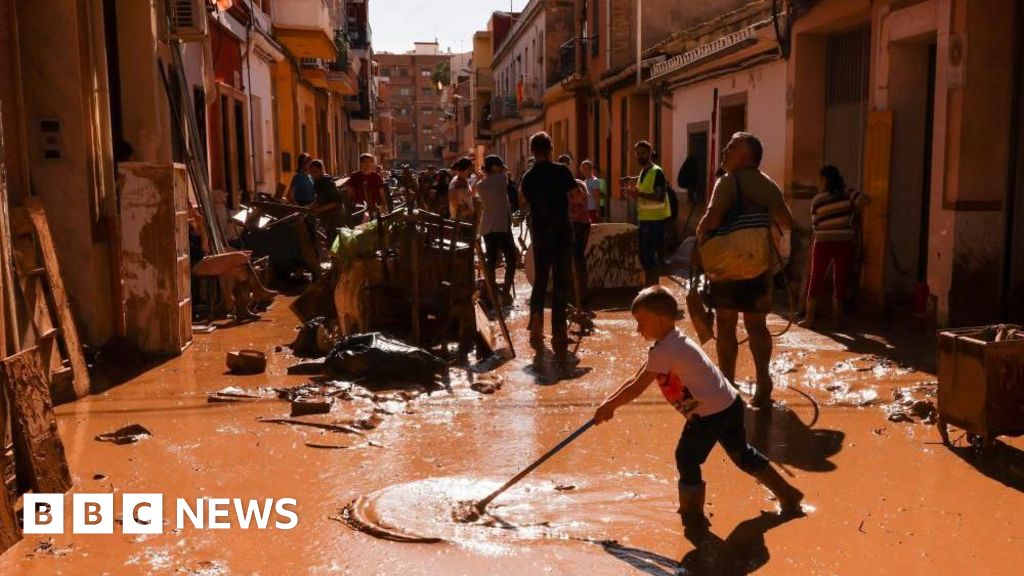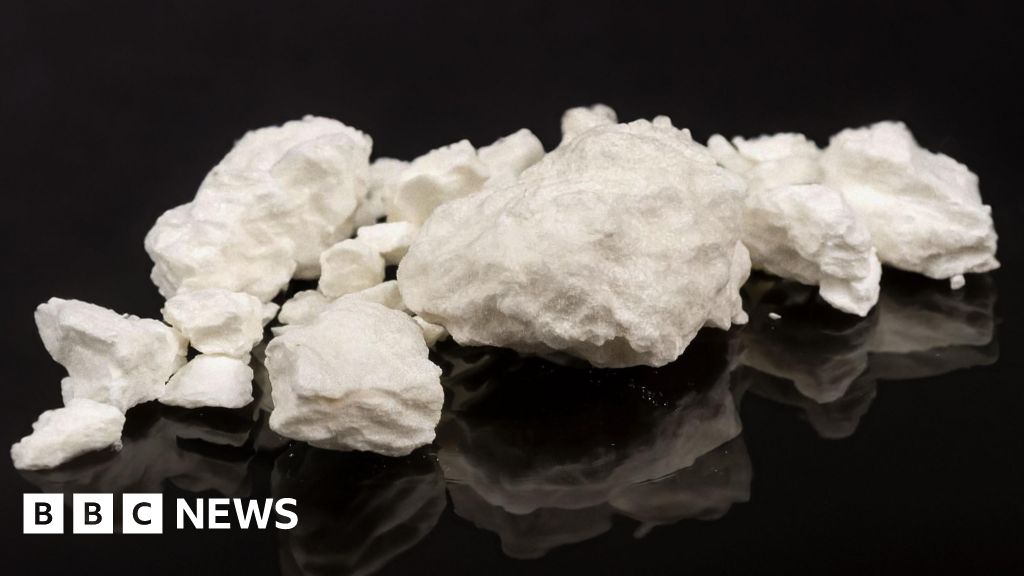ARTICLE AD BOX
 Image source, Reuters
Image source, Reuters
Japan is running out of space to store waste water from Fukushima
A UN watchdog has said that Japan's plan to release waste water from the tsunami-wrecked Fukushima nuclear plant into the sea complies with international standards.
The International Atomic Energy Agency says the release will have a "negligible" impact on the environment.
The findings come as Tokyo's plan is opposed by Beijing and Seoul.
The Fukushima facility is running out of storage space for the water, which was used to cool nuclear reactors.
Japan has not announced a schedule for the release and the plan still needs final approval from a regulator.
In 2011, a tsunami triggered by a magnitude 9.0 earthquake flooded three reactors of the Fukushima Daiichi Nuclear Power Plant. It is regarded as the world's worst nuclear disaster since Chernobyl.
More than 150,000 people were evacuated from an exclusion zone around the plant, which remains in place. The clean-up has cost the Japanese government trillions of yen and could last for 40 years.
Decommissioning of the plant has also started, but the process could take decades.
IAEA chief Rafael Grossi was in Japan on Tuesday to meet Prime Minister Fumio Kishida and deliver the results of the UN body's two-year safety review on Fukushima.
In May, the agency said that national nuclear regulator Tokyo Electric Power (Tepco) had shown its ability to make "accurate and precise measurements" of the amount of radiation present in the treated water.
A final approval from Tepco could come as early as this week.
The plant produces 100 cubic metres of waste water daily. Tanks on site can hold 1.3 million cubic metres.
Most radioactive elements have been filtered from the water, except for tritium, an isotope of hydrogen that is difficult to separate from water.
Tokyo has said the water that will be released into the Pacific Ocean, which has been treated with seawater, has tritium levels well below internationally approved levels.
Nuclear power plants around the world regularly release waste water with tritium levels above that of the treated water from Fukushima.
However China has strongly criticised Japan's plan and on Monday warned the IAEA against endorsing it.
South Koreans, on the other hand, have stocked up on sea salt ahead of the water's release, amid food safety fears.
Fishing communities in Fukushima are also worried customers will shun their catches, despite strict testing protocols for food from the region.
Fukushima fishermen worried about nuclear water release plan

 1 year ago
12
1 year ago
12








 English (US)
English (US)